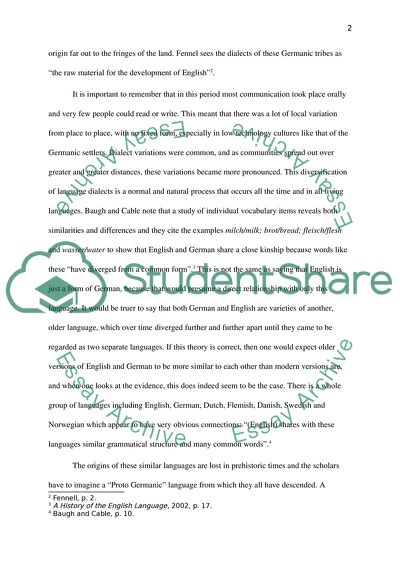Cite this document
(English Is a Germanic Language: What This Means and How Far It Is True Research Paper, n.d.)
English Is a Germanic Language: What This Means and How Far It Is True Research Paper. Retrieved from https://studentshare.org/english/1740887-english-is-a-germanic-language-what-does-this-mean-and-how-true-is-it
English Is a Germanic Language: What This Means and How Far It Is True Research Paper. Retrieved from https://studentshare.org/english/1740887-english-is-a-germanic-language-what-does-this-mean-and-how-true-is-it
(English Is a Germanic Language: What This Means and How Far It Is True Research Paper)
English Is a Germanic Language: What This Means and How Far It Is True Research Paper. https://studentshare.org/english/1740887-english-is-a-germanic-language-what-does-this-mean-and-how-true-is-it.
English Is a Germanic Language: What This Means and How Far It Is True Research Paper. https://studentshare.org/english/1740887-english-is-a-germanic-language-what-does-this-mean-and-how-true-is-it.
“English Is a Germanic Language: What This Means and How Far It Is True Research Paper”. https://studentshare.org/english/1740887-english-is-a-germanic-language-what-does-this-mean-and-how-true-is-it.


